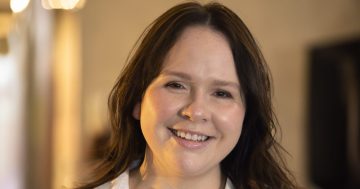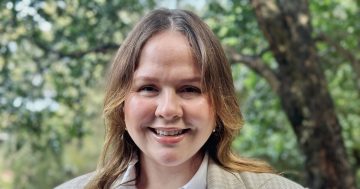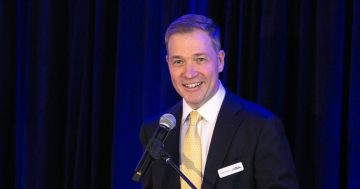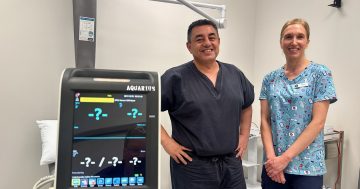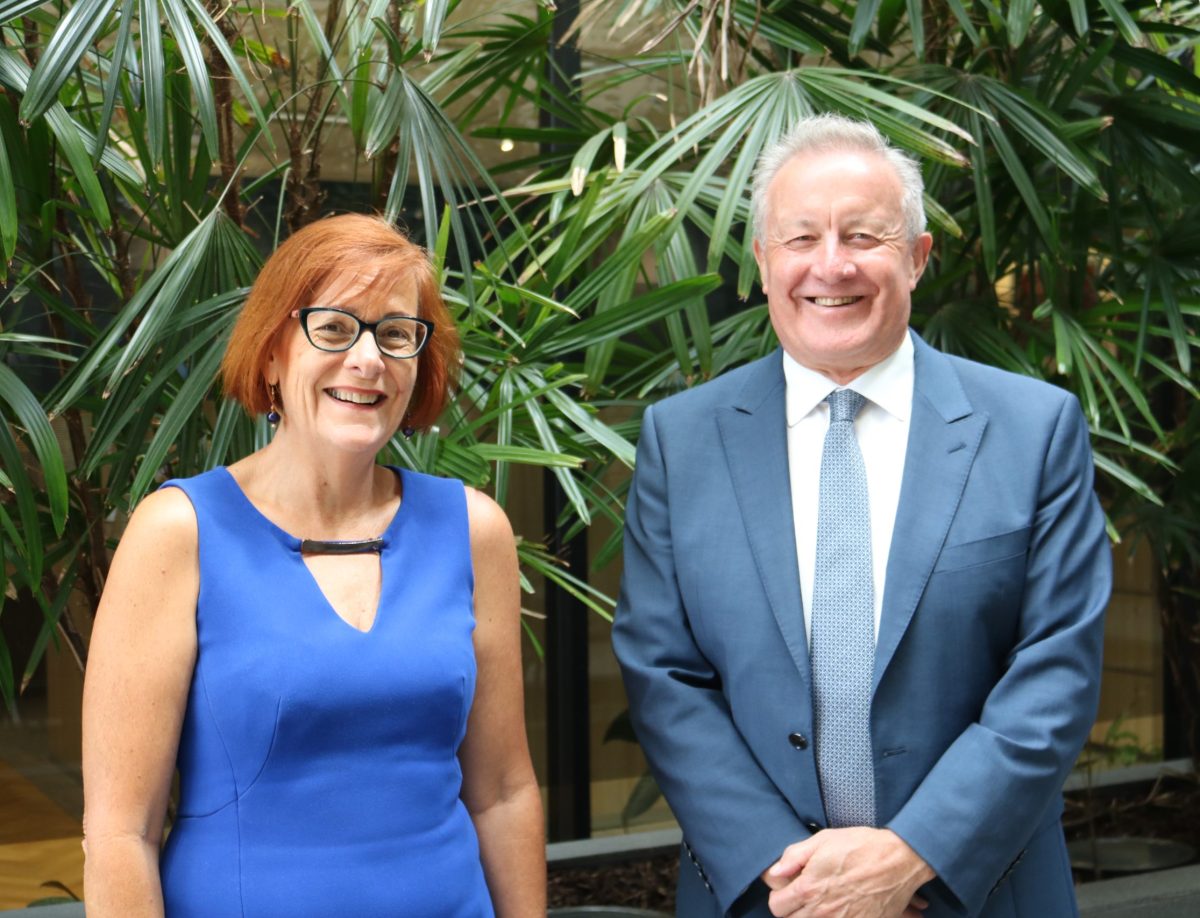
Outgoing RDA Illawarra CEO Debra Murphy with new chair Mark McKenzie. Photo: Jen White.
Regional Development Australia (RDA) Illawarra has its first new chairman in more than 20 years and within a few months will also have a new name, boundary, board and CEO.
Eddy De Gabriele stepped down as chair on 31 December and will soon be followed by CEO Debra Murphy, on 31 January.
The changes follow a Federal Government review of RDA boundaries across the country. As a result, the Shoalhaven Local Government Area, including Jervis Bay, will join the Illawarra organisation to become RDA Illawarra Shoalhaven (RDAIS) on 31 March.
Shoalhaven was formerly part of RDA Far South Coast, which will cease to exist on 31 March. RDA Southern Inland will merge with the ACT to be known as RDA Southern NSW and ACT (RDASNA).
The new chair, Mark McKenzie, has paid tribute to Mr De Gabriele and Ms Murphy for their “exemplary service” at the helm of the organisation.
Mr De Gabriele has served under seven Prime Ministers and eight NSW Premiers as RDAI chair since 2003.
During his tenure, the organisation worked with key stakeholders to deliver successful infrastructure funding for projects such as the Southern Gateway Visitors Centre, the Historic Aircraft Restoration Centre, WIN Convention Centre and the Kiama Council Events and Exhibition Centre.
While Mr De Gabriele is retiring, Ms Murphy has no such plans and instead will undertake some retraining and teaching while she “decides what she wants to do when she grows up”.
“I have loved being a part of the RDA Illawarra for the last seven and a half years and it was after much consideration that I came to the decision that now is the right time,” she said.
Ms Murphy said “without a doubt”, the achievement of which she was most proud was the development and growth of the Leadership Illawarra Program, delivered in partnership with the University of Wollongong and The Illawarra Connection.
“It’s actually putting together the pieces of a really good holistic leader that understands the community, that works with the community leaders in regions in which they operate,” she said.
“We’ve now got this bank of awesome community leaders that are solid and contributing across so many diverse industries and backgrounds.
“We took it from a program in those days that had about 15 people in the first cohort that I took on, to now where we have to knock people back.”
Mr McKenzie, who is CEO of ACAPMA, the national peak body for the fuel industry in Australia, has hit the ground running since he started on 1 January.
“My primary task is to install a new leadership team and a new board that is able to advance the interests of the RDA as the broader Illawarra Shoalhaven,” he said.
“Shoalhaven brings some new and unique elements – a strong defence industry focus, manufacturing like the Manildra facility for biofuels and the chemicals plant – that will need to be integrated with the other aspects that exist within the broader Illawarra region.
“In addition, though, we also have areas that are common to the two regions that will create a unifying opportunity in terms of policy, such as job attraction particularly in the community care and health sector, but also in the hospitality and tourism sector.
“We share concerns in relation to housing availability and affordability, so there’ll be issues that we need to move forward on and transport is also a key element, particularly in terms of our connections to Sydney both to the north and to the southwestern parts of Sydney.”
With an investment of $33 billion planned for the region by 2041, Mr McKenzie said it was critical to have the “enablers” in place to support those and future major projects.
“For instance, if you create jobs but you can’t house people, then effectively the jobs don’t come to your region. Equally if you’re not looking after your community care networks in terms of aged care, or disability care, or looking after kids in terms of child care, what tends to happen is your workers are spending more time on non-work activities.
“To be able to unleash the potential of our workforce, we need to make sure that we’ve got the social fabric in place, so our core focus will be to make sure that we’re advancing those issues that are potentially constraining our ability to attract investment.”
Mr McKenzie said housing availability and affordability remained a high priority for the region, along with transport, skills pipeline and social ecosystems.
“I think one of the challenges for us as a region is we’re competing with 50 other regions for the attention of state and territory governments in terms of funding and support in areas like skills, housing and economic development,” he said.
“It’s very easy for government to be able to decline a request that comes from an industry or a region where there is not a unified consensus around what the needs are.
“The role of an RDA is to collaborate with all stakeholders, fill in the gaps where there might be some gaps in the conversation, but then work with those stakeholders to create a consensus around what the priorities are.
“Then we work in collaboration with them to present a unified front to government – whether that’s state or federal – and that’s where you maximise your opportunity to get your cut of the funding that’s available for economic development for the region.”









